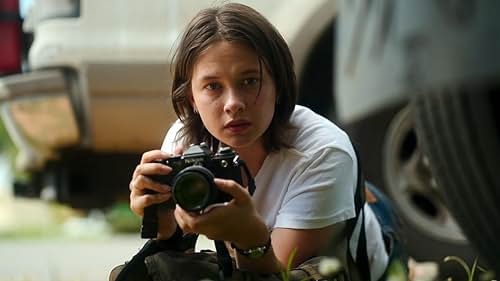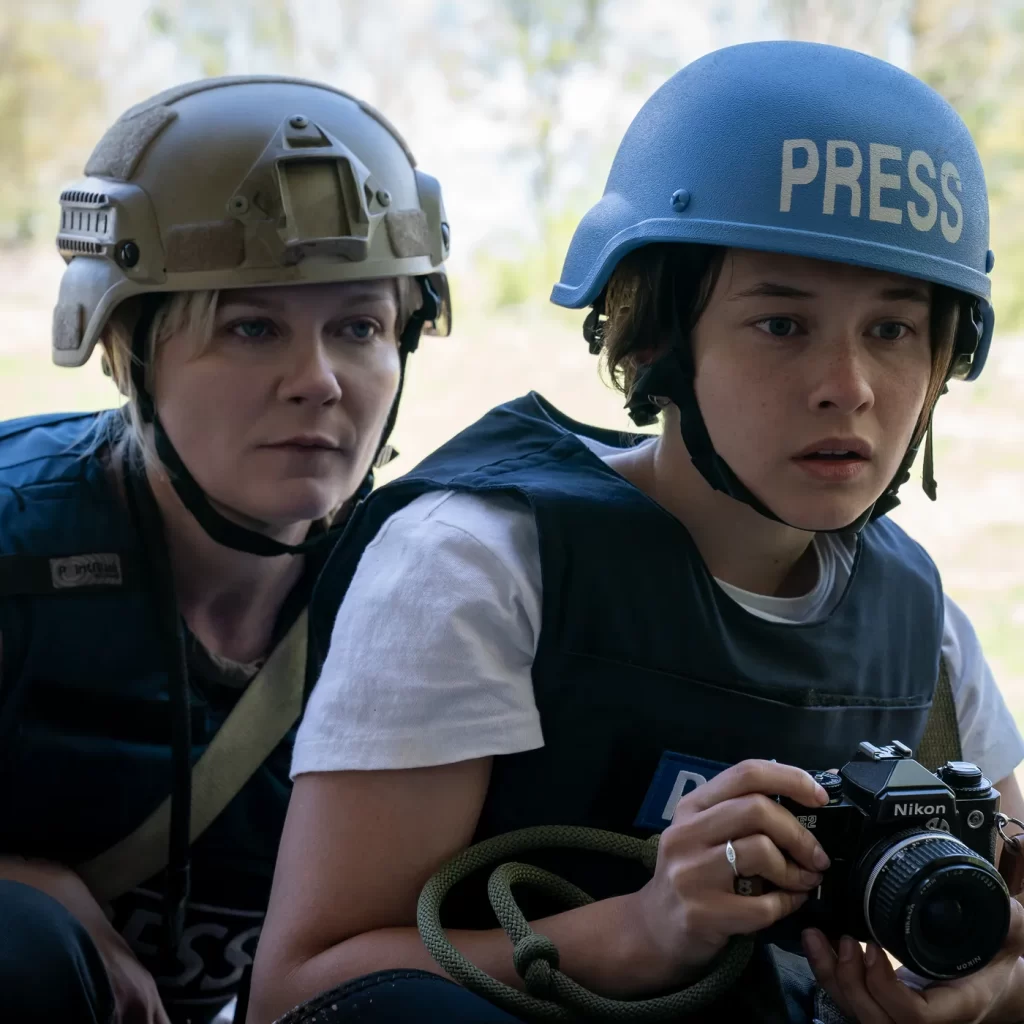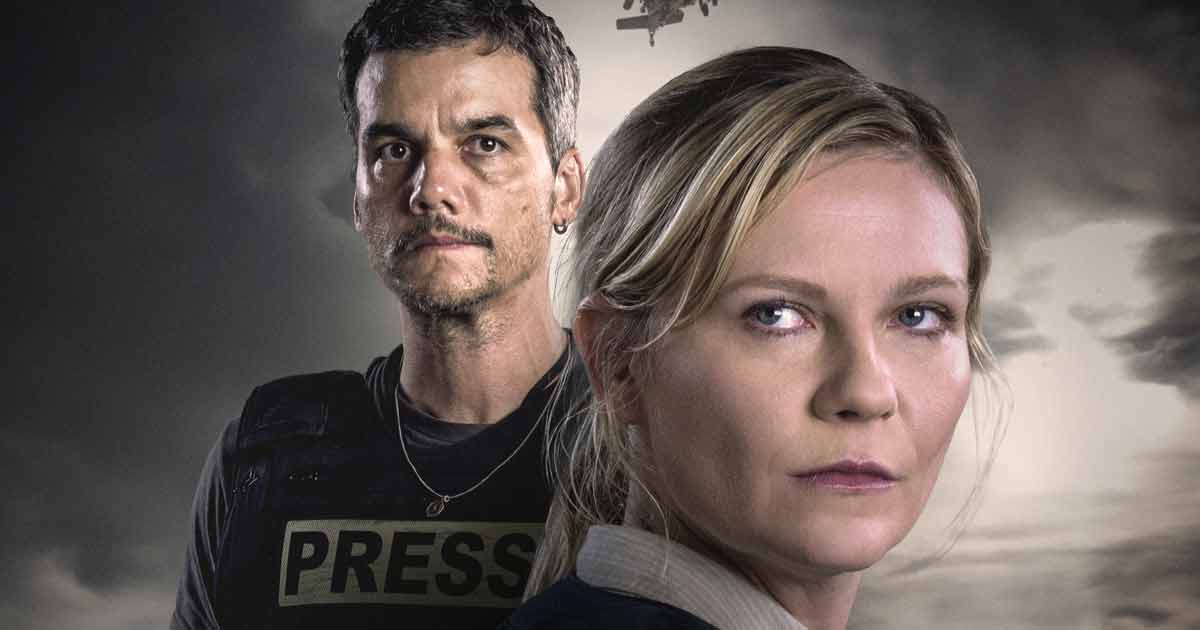Introduction
In a cinematic landscape often dominated by escapism, Alex Garland’s Civil War offers a disquieting exploration of America’s potential descent into chaos. With a deeply unsettling narrative and a stark portrayal of societal collapse, this film stands out as both a compelling character study and a sobering commentary on the fragility of democracy. As we navigate through its harrowing scenes, one can’t help but ponder: Could this dystopian vision become our reality?
Plot Summary
Civil War follows a group of war journalists grappling with the disintegration of the United States as they embark on a dangerous journey to document a civil conflict that has escalated to disastrous proportions. The narrative centers on Joel (Wagner Moura) and Lee (Kirsten Dunst), two seasoned correspondents, alongside Jessie (Cailee Spaeny), a young photographer eager to make her mark. The story unfolds as they traverse a tumultuous landscape, where the tyranny of a despotic president (Nick Offerman) looms large, and the stakes are as high as the body count. As they venture deeper into the heart of chaos, their resolve is tested, and the moral complexities of their profession come to the forefront.
Technical Aspects
Visually, Civil War is a masterclass in cinematography, with Rob Hardy’s handheld camera work immersing viewers in the gritty reality of conflict. The film employs a raw, unfiltered aesthetic that heightens the sense of immediacy and urgency. The sound design complements this visceral experience, with the cacophony of violence juxtaposed against moments of haunting silence. Garland’s decision to forgo the gloss of traditional blockbusters results in a raw portrayal that is both captivating and disturbing. The special effects, while not extensive, are impactful, serving to underscore the grim realities faced by the characters rather than distract with flashy visuals.

Acting and Characters
The performances in Civil War are nothing short of extraordinary. Kirsten Dunst delivers a nuanced portrayal of Lee, a seasoned journalist with a hardened exterior but an underlying sense of empathy. Moura’s Joel embodies the reckless thrill-seeker, driven by the need for a final scoop, while Spaeny’s Jessie represents the innocent idealism that often collides with the harsh truths of war. The ensemble cast creates a palpable tension, with each character bringing their own struggles and motivations to the forefront. The development of these characters is intricately woven into the narrative, allowing audiences to invest emotionally in their fates.
Direction and Screenplay
Garland’s direction is both bold and unflinching, steering the film through dark waters without veering into sensationalism. The screenplay is taut, avoiding excessive exposition while deftly illustrating the chaotic backdrop of a nation on the brink. By focusing on the human element amidst the turmoil, Garland allows viewers to confront the emotional and ethical dilemmas faced by his characters. The dialogue is sparse yet impactful, echoing the weight of their experiences and the gravity of their situation.
Themes and Message
At its core, Civil War serves as a cautionary tale about the perils of complacency and the fragility of social order. The film explores themes of journalistic integrity, the moral implications of documenting suffering, and the haunting specter of authoritarianism. Through its lens, Garland challenges viewers to reflect on their own complicity in societal decay and the potential consequences of inaction. It poses provocative questions about the role of journalists in conflict and the impact of media on public perception, echoing real-life dilemmas faced by today’s newsmakers.
Comparison
In comparing Civil War to Garland’s previous works, particularly Annihilation, one can see a thematic continuity in his exploration of human nature and existential dread. Both films delve into the darker aspects of society, albeit through different lenses. While Annihilation offers a more abstract examination of identity and transformation, Civil War grounds its narrative in the stark realities of contemporary America, making it a more immediate and relatable experience for audiences.

Pros and Cons
Pros:
- Powerful Performances: The cast delivers exceptional portrayals that resonate emotionally.
- Stunning Cinematography: The raw and immersive visual style enhances the film’s impact.
- Thought-Provoking Themes: It engages with pressing societal issues and prompts critical reflection.
Cons:
- Uneasy Viewing Experience: The grim subject matter may be challenging for some viewers.
- Sparse Exposition: While effective, the lack of background details may leave some audiences feeling disoriented.
Conclusion and Rating
Civil War is undeniably a bold and thought-provoking film that confronts audiences with uncomfortable truths about the human condition and the state of our society. Its unflinching portrayal of conflict and the moral complexities of journalism resonate deeply in today’s political climate. While it may not be an easy watch, it’s a necessary one, prompting critical conversations about our collective future.
In summary, Alex Garland has crafted a haunting narrative that lingers long after the credits roll. For those brave enough to engage with its themes, Civil War stands as a formidable piece of cinema, earning a rating of 4.5 out of 5 stars. Dare to watch, but prepare for a journey into the abyss.




Leave a Reply